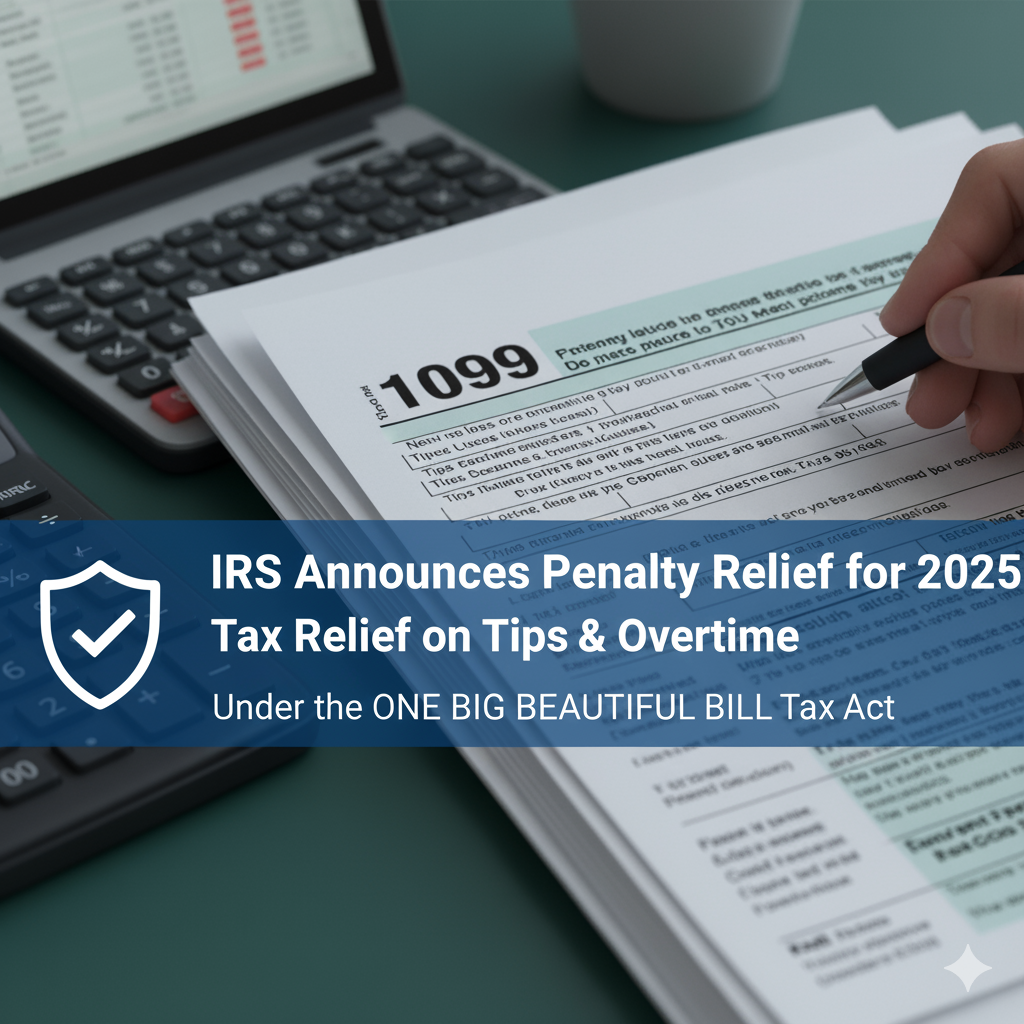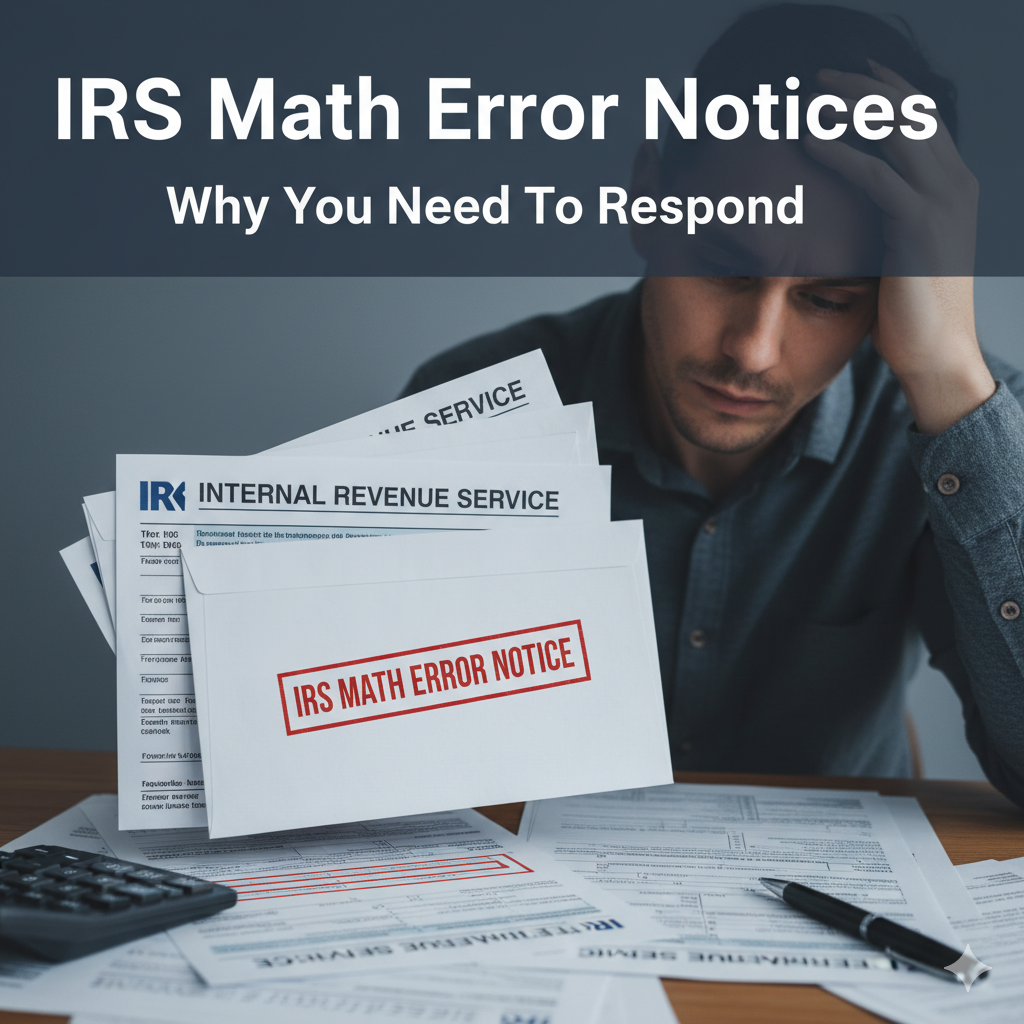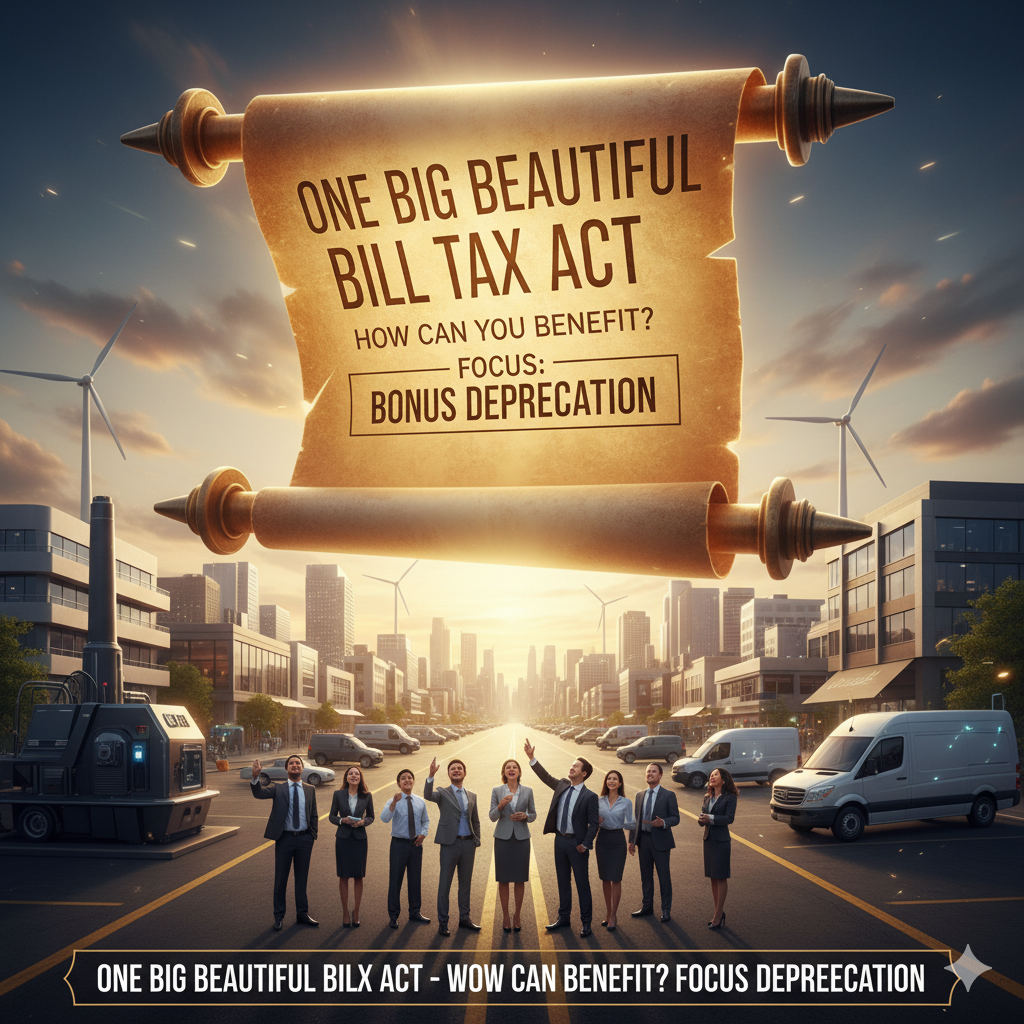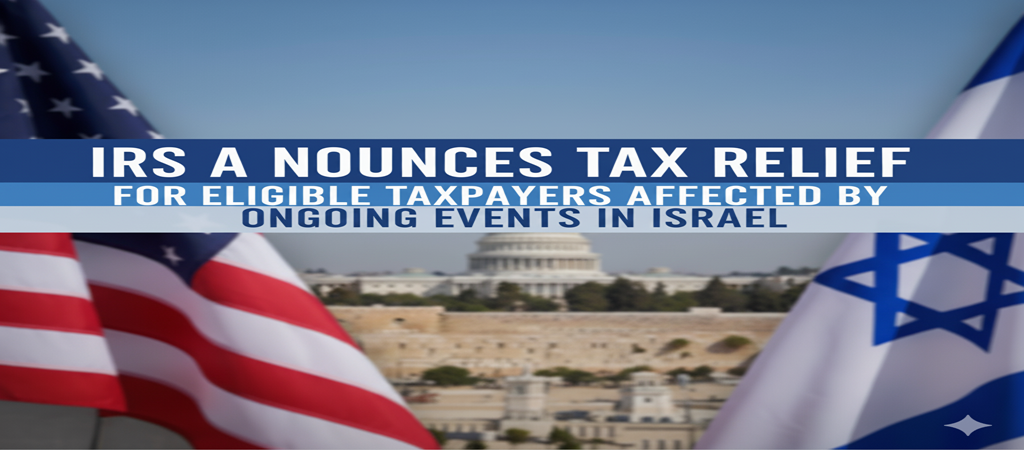IRS Announces Penalty Relief for Tax Year 2025 for Information Reporting on Tips & Overtime under the One Big Beautiful Bill Tax Act
On July 4, 2025 President Donald J. Trump signed into law H.R.1 – One Big Beautiful Bill Act (“OBBBA”). OBBBA contains hundreds of provisions including permanently extending the individual tax rates Trump signed into law in 2017, which were originally set to expire at the end of 2025.
One of the provisions of the OBBBA provides federal income tax deductions for a portion of an eligible worker’s tips and overtime earnings. Both deductions are temporary and are set to expire after the 2028 tax year.
Prior Law
All income is subject to federal income taxes except as provided otherwise under the Internal Revenue Code. There is no distinction from worker’s tips or overtime earnings. In addition, worker’s tips and overtime earnings are subject to Social Security and Medicare taxes (as well as state and local taxes).
New Law – Deduction for overtime pay
OBBBA creates a temporary deduction from gross income for premium pay for overtime hours worked. This means that if you earned $1,000.00 in overtime wages, that you could be able to claim as a deduction $1,000.00 this essentially exempting this income from federal taxation.
New Law – Deduction for tips
OBBBA creates a separate deduction for tipped workers, allowing them to deduct up to $25,000 of qualified tips earned.
Impact on employers
Starting with the 2025 tax year, employers are required to separately report on Form W-2 the portion of the employee’s pay that is for qualified overtime compensation and the employee’s qualifying tip-earning compensation. non-employees, businesses must publish a statement identifying the portion of payments made to the individual that are designated as cash tips, as well as the individual’s qualifying tip-earning occupation.
Transition penalty relief for tax year 2025
On November 5, 2025 the IRS issued guidance (Notice 2025-62) providing penalty relief to employers and other payors for tax year 2025 regarding new information reporting requirements for cash tips and qualified overtime compensation under the OBBBA.
Specifically, employers and other payors will not face penalties for failing to provide a separate accounting of any amounts reasonably designated as cash tips or the occupation of the person receiving such tips. In addition, employers and other payors will also not face penalties for failing to separately provide the total amount of qualified overtime compensation. The relief is limited to returns and statements filed and provided for tax year 2025 and applies only to the extent that the person required to make the return or statement otherwise files and provides a complete and correct return or statement.
While not a requirement to receive the penalty relief, employers and other payors are encouraged to provide employees and payees, particularly those in a tipped occupation, with the occupation codes and separate accountings of cash tips, so the employee or payee can claim the deduction for qualified tips for tax year 2025. Likewise, employers and payors are encouraged to provide employees and payees with separate accountings of overtime compensation, so the employee or payee has readily available the information necessary to claim the deduction for qualified overtime compensation for tax year 2025.
If you are an employer using a payroll service, you should check with your service provider on what information they need to accurately report on the 2025 Form W-2 each employee’s qualified overtime compensation and qualifying tip-earning compensation. Also, where the employer filed 2025 quarterly employment tax returns (Form 941) without claiming a tax credit for Social Security taxes paid qualified tips, amended employment tax returns should be prepared and filed to claim these overpaid amounts.
But beware on the deduction for overtime pay …
OBBBA caps the deduction for overtime earnings at $12,500 (or $25,000, in the case of a joint return) for all employees. For higher earners, the allowable deduction is reduced by $100 for each $1,000 by which the employee’s gross income exceeds $150,000 (or $300,000, in the case of a joint return). That would mean for an individual worker, this deduction would be completely phased out upon the employee’s gross income exceeding $275,000. Keep in mind that this deduction applies only to the premium compensation paid more than an employee’s regular rate of pay. If Federal law such as Section 7 of the Fair Labor Standards Act established a worker’s premium pay, then such premium compensation paid more than an employee’s regular rate of pay also qualified. However, if such premium compensation is paid under some state-law requirements or under come collective bargaining agreement, such premium pay does not qualify for the deduction. The overtime deduction also does not apply to qualified tips.
But beware on the deduction for tips …
Similarly to the overtime deduction, the allowable deduction for tipped earnings is reduced by $100 for each $1,000 by which the tipped worker’s gross income exceeds $150,000 (or $300,000, in the case of a joint return). Only tips that are paid voluntarily by the customer or client, not subject to negotiation, may be deducted as qualified tips. Tips received under tip-sharing arrangements also count as qualified tips; however, earnings from mandatory service charges assessed automatically to customers are not deductible as qualified tips.
Furthermore, the deduction is available only for tips earned in “traditionally and customarily tipped industries.” This means the hospitality industry (restaurants and hotels), and other businesses where tips are common (such as nail or hair salons). It remains to be seen to what extent anyone who renders services could claim qualified tips; therefore, to provide clear guidance as tips received under tip-sharing arrangements count as qualified tips, the Treasury Secretary is required to publish within the next 90 days, a list of occupations that have customarily and regularly received tips on or prior to December 31, 2024.
OBBBA also includes an employer tax credit for Social Security taxes paid on all qualified tips which under prior law was applicable only to food or beverage service employees but now this credit extends to all employees that customarily receive tips in all industries such as in the industry of beauty services (i.e., hair care, nail care, and spa treatments).
This deduction also applies to individuals who are not statutory employees but who earn tips during a trade or business. The tip deduction only applies to the extent that the income from that trade or business (including tips) exceeds the full sum of allowable deductions (not counting the tip deduction) allocable to that trade or business. In another words, to the extent that the tip deduction would result in a loss in your business, you would not be able to claim the full tip deduction amount.
What Should You Do?
You know that at the Law Offices Of Jeffrey B. Kahn, P.C. we are always thinking of ways that our clients can save on taxes. If you are selected for an audit, stand up to the IRS by getting representation. Tax problems are usually a serious matter and must be handled appropriately so it’s important to that you’ve hired the best lawyer for your particular situation. It is advisable to consult with a tax professional to understand how these tips and overtime deduction changes might affect your specific tax situation, especially if your income relies on tips and/or overtime or you are an employer. The tax attorneys at the Law Offices Of Jeffrey B. Kahn, P.C. located in Orange County (Irvine), Los Angeles, San Francisco Bay Area (including San Jose and Walnut Creek) and elsewhere in California are highly skilled in handling tax matters and can effectively represent at all levels with the IRS and State Tax Agencies including criminal tax investigations and attempted prosecutions, undisclosed foreign bank accounts and other foreign assets, and unreported foreign income. Also if you are involved in cannabis, check out what a cannabis tax attorney can do for you. And if you are involved in crypto currency, check out what a bitcoin tax attorney can do for you.











 Follow
Follow Follow
Follow